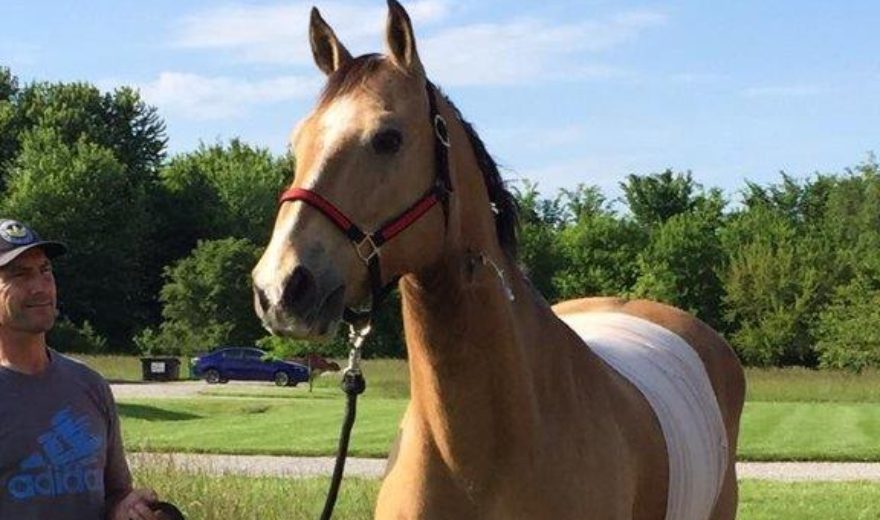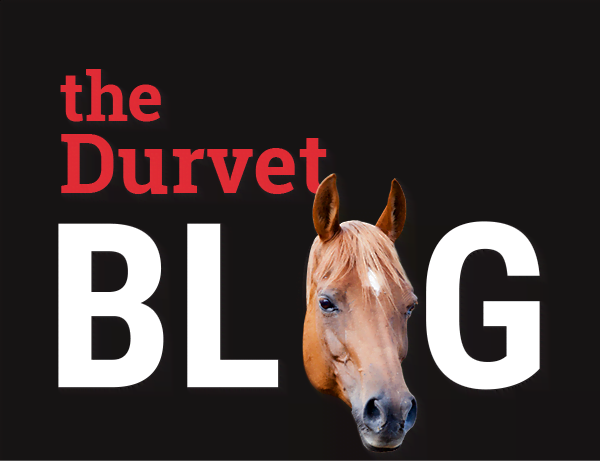
As a horse owner, the word COLIC can cause fear and panic! For those who aren't familiar with colic, it's the leading medical cause of death in horses.
Technically, colic refers to pain in a horse’s abdomen, although colic episodes typically reflect conditions of the colon. While colic can include a simple blockage, a spasm in the colon/gas buildup, or torsions in the digestive tract, the majority of colic episodes are idiopathic, or “of unknown origin."
In other words, we don't know exactly what causes a horse to colic in most cases. 75% of colic cases quickly respond to treatment and most are due to gas colic or probable impactions.
Veterinary treatment usually involves controlling the horse's pain with analgesics, softening the impaction with mineral oil or other laxatives, and encouraging motility by having you walk the horse.
Just a little over a year ago we sent our horse Aspen off for some training. Everything was done correctly to minimize stress and help him settle into his new surroundings. The stable and trainer monitored him and gave him the best of care.
However, for whatever reason, he COLICED! An emergency visit with treatment from the vet that night and two follow up visits with additional treatments at the equine hospital the next day ended with a dreaded decision to make.
follow up visits with additional treatments at the equine hospital the next day ended with a dreaded decision to make.
Euthanize him as the colic had been going on over 24 hours and was getting worse and, without medications, he was in severe pain OR send him into emergency colic surgery, which has a lot of unknown risk factors and isn't a guaranteed success!
Aspen headed into a 4-plus hour emergency colic surgery with the best veterinarian team ever- Wilhite & Frees located just south of Kansas City! It wasn't an inexpensive surgery but after watching this skilled group of professionals work wonders, they earned every penny of it! Aspen came through with flying colors!
Be sure to educate yourself on preventing and treating colic! Dr. Erin Malone, DVM at the University of Minnesota, offers nine steps to reduce the risk of colic, but states there is no guarantee to eliminate it. At the top of the list is:
Always have fresh, clean water available
Horses without water for as little as 1-2 hours were at increased risk of colic in one study. The risk was especially high for horses over 6 years of age. Additionally, horses have been shown to prefer to drink out of buckets compared to automatic waterers, likely due to the ability to ingest large quantities quickly.
You can read Dr. Malone’s complete list at https://www.extension.umn.edu/agriculture/horse/health/preventing-and-treating-colic/
As you can imagine we keep a very close eye on Aspen and any signs of anything “off” with him causes a sense of panic. We recently took Aspen on his first trip since his colic surgery a year ago. We went on a weekend trail ride and camp out!

But Aspen wasn't drinking!
Even writing about it, I can feel that fear and panic rising in me! Luckily, we'd packed some DuraLyte by Durvet.
DuraLyte is a balanced electrolyte supplement to replace lost electrolytes when needed, and to stimulate the thirst response so horses remain well hydrated at all times! Aspen started drinking water, my blood pressure was lowered, and we had a great weekend thanks to the DuraLyte!
As a preparedness plan, we will make sure to keep all our horses on DuraLyte prior to, during and after any travel. And we'll, of course, use it in the same manner when doing strenuous exercise, as well as in hot weather and even cold weather when horses aren't apt to drink as much!

 BACK TO MAIN BLOG
BACK TO MAIN BLOG 
Comment